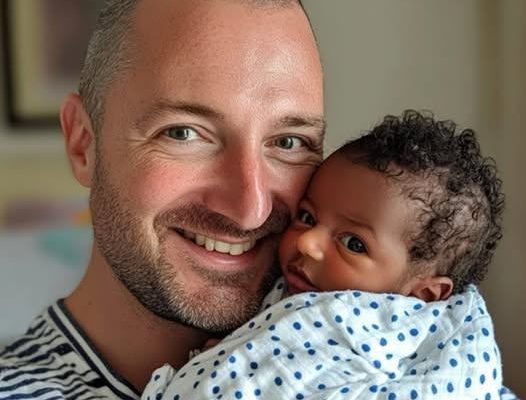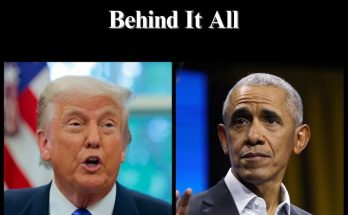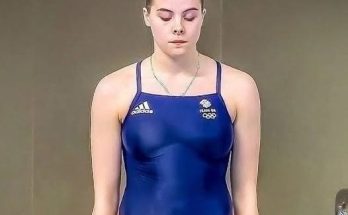My wife and I always dreamed of starting a family. We imagined the milestones—choosing a crib, tiny clothes, bedtime stories, and holding our newborn close, a little piece of both of us. When the day finally arrived, our hospital room was filled with laughter, nerves, and the love of family. But when our daughter was born, something unexpected happened that none of us were prepared for.
As the doctor handed her to us, my wife suddenly recoiled, eyes wide with disbelief. “That’s not my baby!” she cried, her voice trembling. “That can’t be my baby!”
The nurse gently reminded her, “She’s still attached to you.” But my wife was shaking her head, overwhelmed. “I never… I never slept with anyone of a different background,” she said, struggling to find the words. The room grew quiet, and our family slowly stepped out, unsure what to say.
I was ready to leave, feeling lost and confused, when my wife whispered, “But… she has your eyes.” I looked again. Our daughter’s skin was a beautiful, deep brown. Her tiny fists clenched tightly as she cried out, but her eyes—those bright green eyes—were unmistakably mine.
My wife broke down in tears, and the nurse quietly placed our daughter in a bassinet and left us alone to gather our thoughts.
“What’s happening?” I asked, voice soft and unsure.
Continue reading on next page…
“I don’t know,” my wife said through tears. “I swear, I don’t know. This doesn’t make sense.”
Over the next few days, the hospital conducted thorough tests to make sure there was no mix-up. The results were clear—our daughter was biologically ours. But how was this possible? We searched our family histories for any hint of unexpected ancestry, but found none.
At home, tension and confusion hung in the air. Friends whispered, strangers stared, and my wife retreated from the world. I tried to stay strong, but the question remained: how?
One evening, after rocking our daughter to sleep, I found my wife sitting at the kitchen table with an old photo album. Her face was pale, her eyes distant. She hesitated, then told me something she’d never shared before.
“Back in college, I donated eggs,” she said quietly. “I needed the money, and I thought it was helping others. I never imagined it would affect us like this.”
I was stunned. “You mean… our daughter might be from that?”
“I think so,” she replied. “My egg, fertilized with donor sperm. A mix-up. That’s the only explanation.”
Weeks later, we received a letter from the fertility clinic. A lab error had occurred. My wife’s donated egg was accidentally used in our IVF procedure, fertilized by a donor’s sperm, and implanted during our cycle. They apologized deeply for the mistake.
We sat in silence, absorbing the truth. Our daughter had entered our lives in a way we never expected, but she was ours in every way that mattered. We named her Mia.
As time passed, we stopped focusing on what made her different and started celebrating who she was. Mia was not a mistake. She was a gift.
Her laughter brightened our home. Her curious eyes lit up every room. We learned to face questions and stares with honesty and love. We talked openly about family, heritage, and the meaning of love. We embraced our unique story because love, we realized, is what truly defines a family.
One day, when Mia was five, she asked, “Daddy, why do I look different from you and Mommy?”
I held her close and said, “Because you’re special. You were made from love—love that sometimes comes together in unexpected ways. That’s what makes you one of a kind.”
She smiled, resting her head on my chest. “I like being one of a kind.”
And in that moment, I understood that family isn’t only about biology. It’s about the love we share, the bonds we build, and the courage to embrace our story, however it unfolds.
Our journey was unexpected, surprising, and at times confusing. But it brought us Mia—and that made it perfect.



